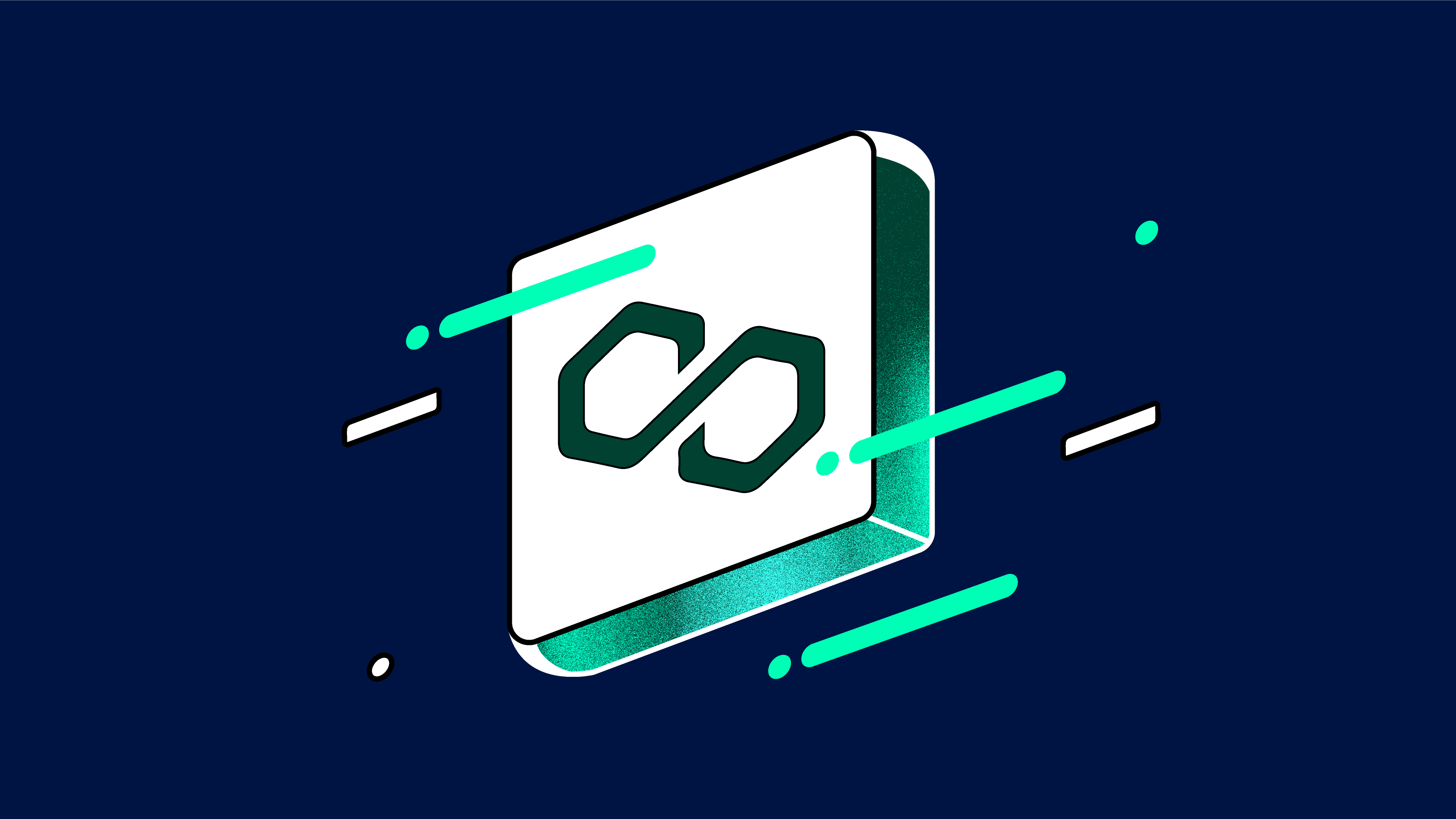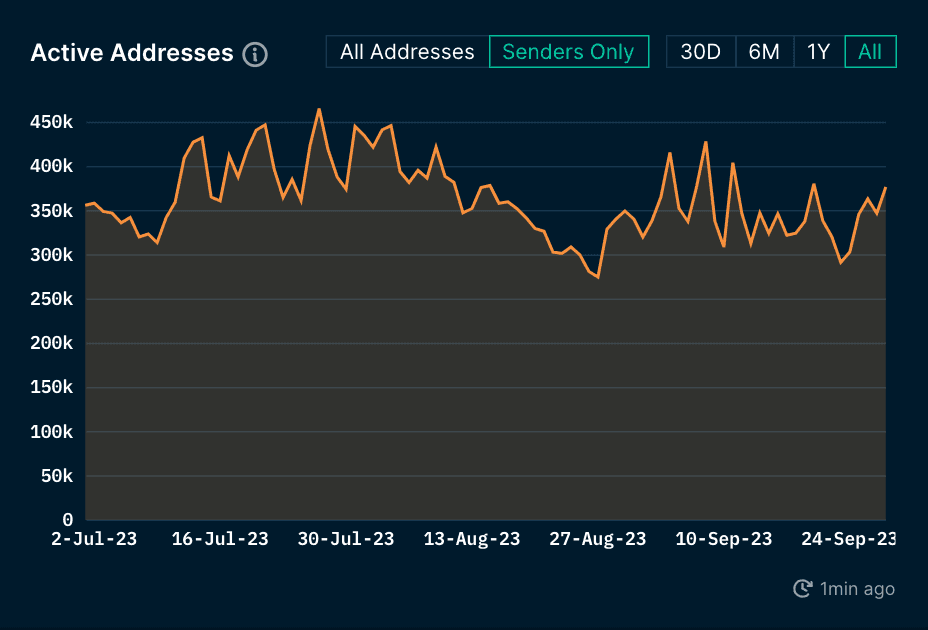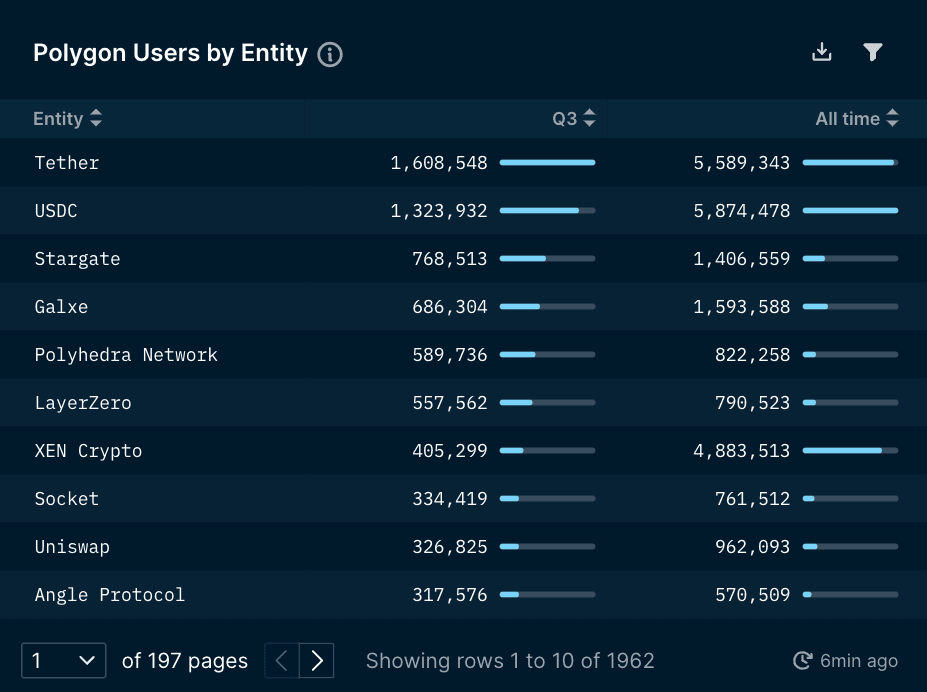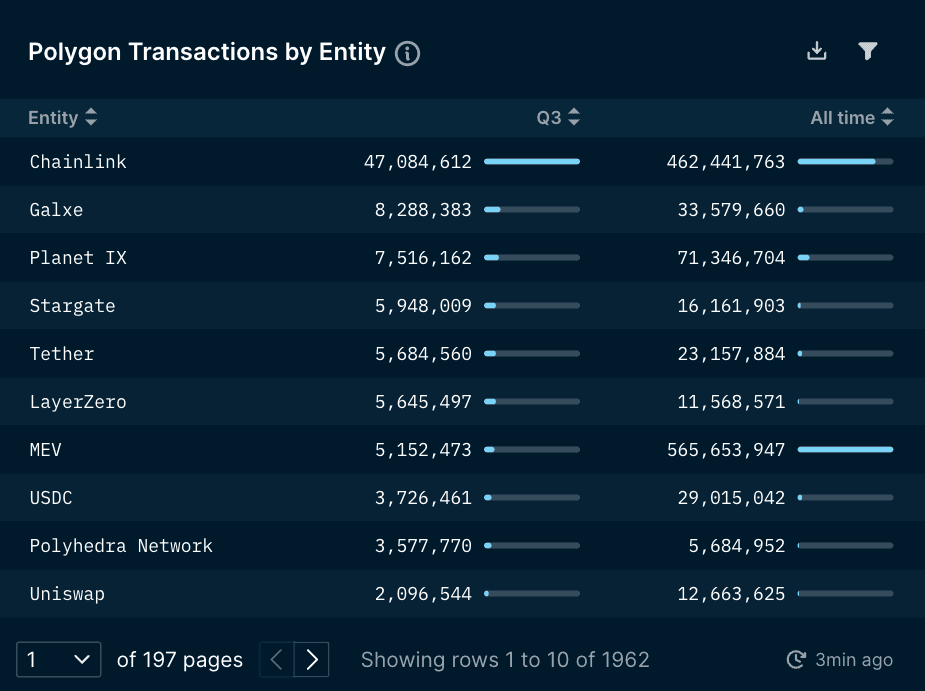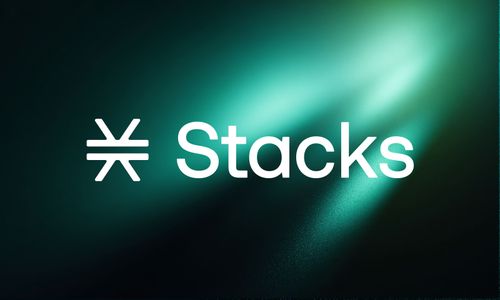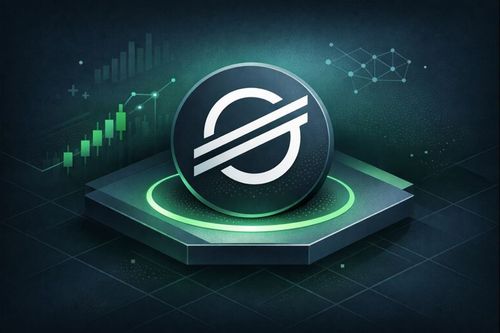Disclaimer: Nansen has produced the following report as part of its existing contract for services provided to Polygon Labs (the "Customer") at the time of publication. While Polygon has the right to review and provide feedback to Nansen, Nansen maintains full editorial control over the publication of this report. All views expressed are the independent opinions of Nansen's research analyst(s) who are the author(s) named in this report. This report is intended for informational purposes only and does not serve as investment, financial, professional, or other advice. For more information, please refer to the disclaimer at the end of this report, as well as our Terms of Service.
Overview
Polygon PoS, an EVM-enabled sidechain scaling solution initially developed by Polygon Labs, gained popularity due to its low fees and developer-friendly environment since its emergence in 2021.
Alongside Polygon PoS, Polygon Labs has developed various scaling architectures, such as Polygon zkEVM, and Polygon Chain Development Kit (CDK). Polygon Labs is also actively working on Polygon Miden, a ZK-rollup aiming to deliver a faster, more secure network with minimal transaction costs, set for a Q4 testnet launch. Lastly, the team is gearing up for Polygon 2.0, an upgrade aiming to create an ecosystem of unified ZK L2s on Ethereum. This includes a proposal for Polygon PoS to become a zkEVM validium.
Announced this year, Polygon CDK is a collection of open-source software components that makes it easy for developers to design and launch ZK-powered L2s on Ethereum. Projects building L2s using Polygon CDK include ImmutableX, Astar, Canto, Manta, Gnosis Pay, Aavegotchi, IDEX, CapX, and WireX. This quarterly report delves into the Polygon ecosystem's performance, spotlighting the recent advancements that have elevated both its network efficiency and user experience.
Key Development: Q3 2023
- Polygon PoS introduces Inborg Upgrade to address BADBLOCK error. The upgrade introduces the concept of Milestones to shift State Sync from block-based to time-based, improving network consistency and performance.
- Polygon Miden, with an expected Q4 testnet launch, treats all assets as native. It uses "faucet" accounts for asset issuance, enhancing transaction efficiency and addressing blockchain state growth. It emphasizes zero-knowledge (ZK) proofs for private applications, introduces a privacy categorization framework, and supports private smart contracts.
- The Polygon ID team introduced Polygon ID Release 4 with tools like Explore Schema Builder. The release focuses on on-chain verification and an upcoming Developers Portal. Polygon ID provides a decentralized identity framework. It supports diverse verification methods without centralized data management.
- Polygon zkEVM Mainnet Beta launched the Dragon Fruit upgrade, which, among other things, included support for the PUSH0 Ethereum opcode.
Ecosystem
The following are notable developments that occurred within the Polygon ecosystem during Q3:
- Milano Hub collaborated with Polygon Labs on the "Institutional DeFi for Security Token Ecosystem Project." The initiative seeks a secure DeFi environment for regulated entities.
- Proton Gaming, a validator for the Polygon PoS network, offered insights about what it means to be a validator and Web3’s gaming potential.
- dApp Store Kit got a major upgrade with Meroku Protocol V2, empowering developers to design their own EVM-compatible dApp store where they can set their own rules for distribution, curation, governance, branding, and pricing.
- Lufthansa’s Uptrip was launched as a loyalty program that rewards travelers with NFT trading cards on the Polygon PoS network. Over 20,000 users have joined since the soft launch.
- Nexon is building its own blockchain using Polygon CDK for MapleStory Universe, integrating Web3 components into the global gameplay hit, MapleStory.
- Polyhedra Network announced that it is developing a zero-knowledge cross-chain bridge. The deVirgo system achieves fast-proof generation speeds.
- Immutable zkEVM launched a testnet, targeting the gaming industry for their appchain. Immutable zkEVM combines ZK-rollup technology with the liquidity of the Ethereum ecosystem for enhanced gaming experiences.
- Polygon Labs launched the Solution Provider Network (SPN) to connect developers with solution providers in the Polygon ecosystem. Solution providers can increase visibility through activities and badges.
- Canto announced a transition to a zero-knowledge Layer 2 on Ethereum using Polygon CDK. The goal is to create a blockchain for real-world assets.
- Loyalty programs are continuing to integrate Web3 components with tokenized memberships. Blockchain-powered loyalty fosters brand interoperability, with Hang pioneering this era of engagement.
- Grab, the ride-hailing app from Southeast Asia, has introduced a Web3 Wallet on Polygon PoS network for digital payment vouchers and collectibles. This Web3 Wallet by Grab is currently available only in Singapore and showcases a practical application of purpose-specific money for business transactions using StraitsX's XSGD.
Nansen On-Chain Data
Daily Transactions
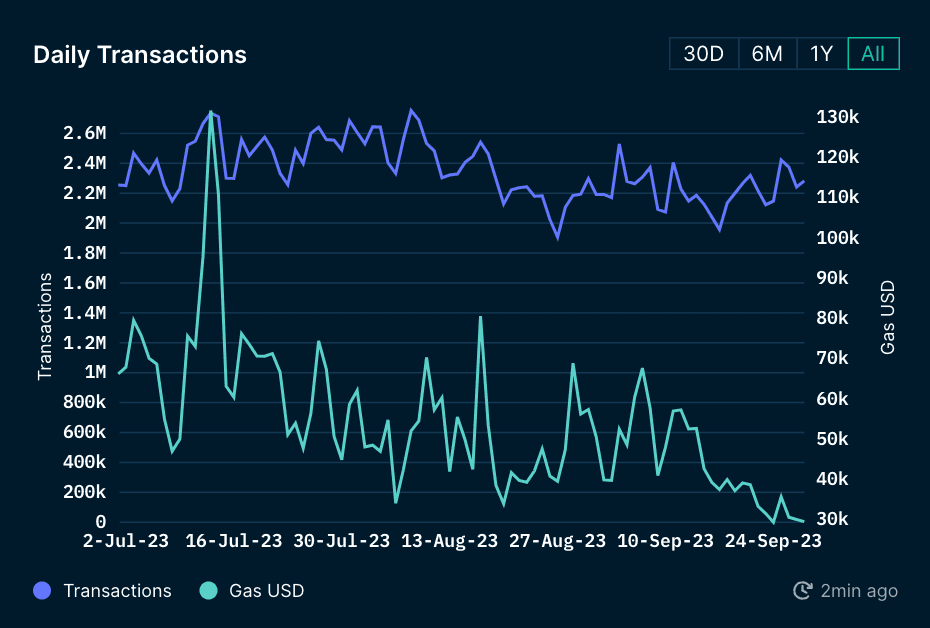
In Q3 2023, the daily gas fees on the Polygon PoS network exhibited significant volatility, with values oscillating between approximately $29k and $132k. In contrast, the previous quarter saw fees ranging from $68k to $236k.
Simultaneously, the daily transaction counts for Q3 2023 peaked at roughly 2.8m transactions and dipped to a low of about 1.9m transactions throughout the quarter.
Daily Active Addresses
In Q3 2023, the count of daily active addresses on Polygon PoS showed consistent stability, varying between 275k and 466k. This stable range suggests that Polygon PoS has successfully retained a robust user base and ensured a consistent rate of daily user engagements.
Average Daily Gas Paid (vs Ethereum)
In Q3 2023, the peak average daily gas fee for transactions on Polygon was $0.05. Throughout the quarter, gas fees on Polygon PoS ranged from $0.01 to $0.05. In contrast, Ethereum's fees fluctuated between $1.95 and $15.
Top Entities by Users and Transactions
To assess the leading ecosystem participants on Polygon PoS in Q3 2023, we can use Nansen's detailed labels to review user counts and transaction volumes. In Q3 2023, Chainlink led the way on Polygon PoS, registering 47.08m transactions. This was followed by Galxe with 8.29m and Planet IX at 7.52m transactions. Stargate and LayerZero also posted notable transaction numbers, logging 5.95m and 5.68m transactions, respectively. Regarding user engagement on Polygon PoS, Tether and USDC stood out, boasting 1.6m and 1.32m users, respectively.
Smart Money Segments on Polygon PoS
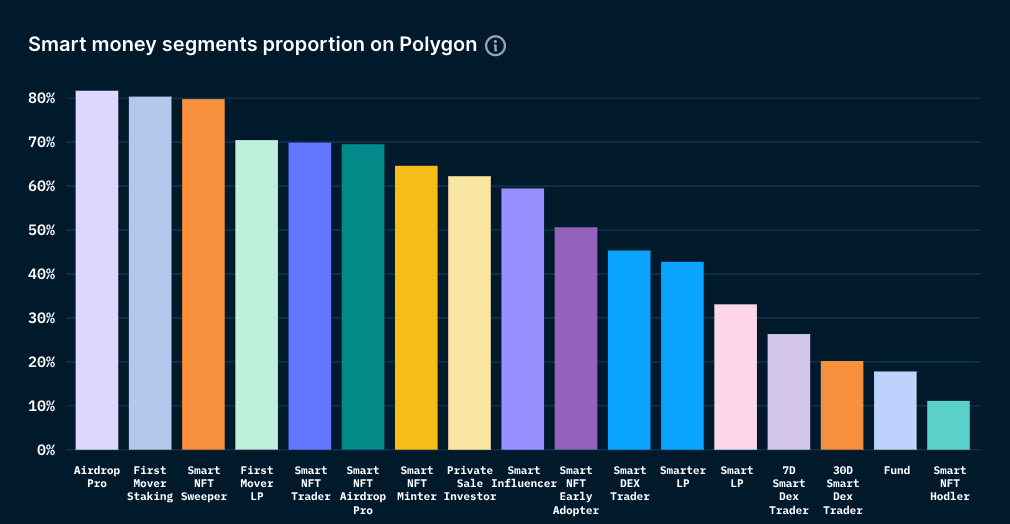
The chart above provides a comprehensive breakdown of Smart Money Ethereum addresses active on Polygon PoS. Smart Money is one of the most beneficial features offered by Nansen, as it comprises a list of labels for wallets that exhibit high levels of activity and profitability on-chain. In Q3 2023, Airdrop Pro, First Mover Staking, and Smart NFT Sweeper accounted for close to 80% of the Smart Money activity on Polygon PoS.
Check out this page for how the Smart Money categories are defined and how to use those labels on Nansen!
Closing Thoughts
Polygon Labs has demonstrated it is a ZK research and development powerhouse, continuing to build during the bear market. The company has outlined a bold vision with Polygon 2.0, with a focus on a multichain, unified future of scaling Ethereum, enabled by ZK technology. The Inborg Upgrade for the Polygon PoS network and the anticipated Polygon Miden testnet launch highlight the team’s continued improvement and innovation.
The diverse collaborations, from gaming to mainstream applications like Grab's Web3 Wallet and Lufthansa’s NFT rewards, indicate the wide adoption of the Polygon network. Furthermore, the consistent number of daily active addresses and Polygon PoS's cost-effectiveness, especially when compared to Ethereum, emphasize its strong value to users.
With upcoming developments, especially Polygon 2.0, the Polygon protocols are set to further their impact on the decentralized ecosystem.

